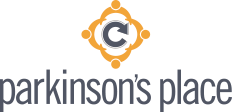To DBS or not to DBS?
This is a serious question for many who are facing a challenging step in PD. Just this week, one of our beloved board members, Cidney Donahoo, decided to have Deep Brain Stimulation (DBS) surgery. Hers and Pat’s (her husband) blog posts speak to the many reasons why she felt it was necessary. As of the last post on Facebook, Thursday, the 20th, Cid was up and walking post-op - way to go!
The reason to get DBS or not comes down to quality of life. This is something my dad and I talk about a lot via three questions: What’s acceptable, what’s important and what’s next. We’ve found the serenity prayer is a good guideline here.
“God, give me the strength to change the things I can
And the courage to let go of those I cannot
And the wisdom to know the difference between the two.”
What’s acceptable has to do with understanding there’s a real disease, Parkinson’s in this case, and it’s going to have a real impact. Pray for courage here - as PD is something, in terms of having it or not, for now, that cannot be changed.
Once you accept you have it, what will you do with it? What’s important? Now we pray for strength - because this is where you can have a significant impact. We write about the Person With Parkinson’s (PWP) personal ability to shape his or her experience with PD here a lot, but it can’t be said enough: exercise, socialization, positive engagement in life all have true, measurable effects.
DBS, too, has had positive, measurable effects for many. In 2004, while my dad was early onset, he received a call while we were walking around Washington DC from a PWP singing the praises of DBS for him. He was advocating strongly for my dad to look into it. As my dad was early onset and not experiencing overly significant symptoms, he listened politely, as my dad almost always does, then set the advice aside.
Ten years later, the effects of PD were much more dramatic. The process and the technology involved with DBS had also improved significantly. But the fact that it still involved drilling into his head was enough to make my dad stay on the sideline. The fact that his neurologist also said he had aged out of the window of opportunity made it that much easier of a decision.
Like many things in life, seeking a second or third opinion is often valuable. I have been told by people who work with DBS devices that the statement from my dad’s neurologist is not accurate. That my dad could, in fact, have the surgery and may very well experience many positive benefits.
So there it is - the need for the wisdom to know whether or not it’s the right thing to do, whether or not he should have the surgery, with its risk/reward for his particular symptoms and set of circumstances, or he should accept what he has and do the best he can with it.
It ain’t easy. And ultimately, it’s his head, his body and his decision. I do my best as his son and care partner to provide him with the information I receive and share it with him.
I look forward to seeing my friend and fellow board member, Cidney, up and about and enjoying life post-op DBS. I have every confidence in the world it’s going to work well for her - again, largely because I choose to see the world in its half-full state.
I also look forward to seeing my dad for a week during the Christmas holiday. Time, circumstances and attitudes shift. I’ll do what I do best: listen, provide information and love him.
